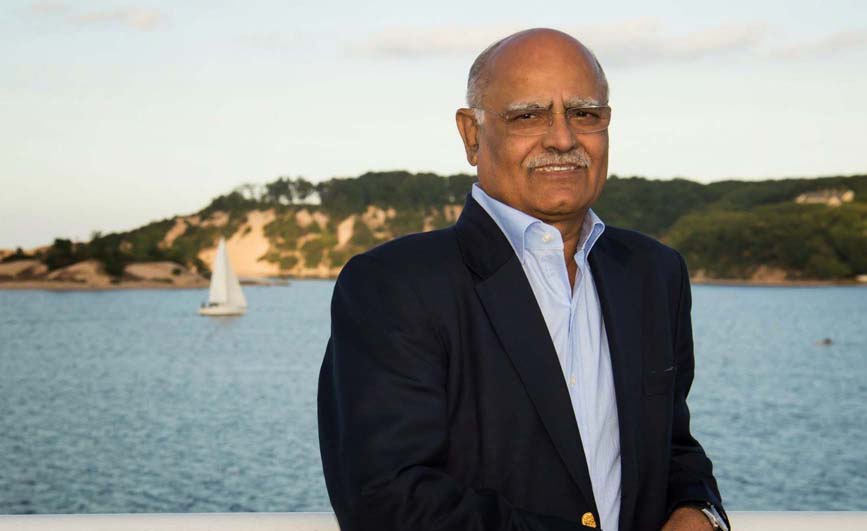Sangh is king, and a BJP riven by conflict won't get anywhere alone
Nitin Gadkari has gone. Rajnath’s raj is back at 11, Ashoka Road after a gap of four years. For a 30-year-old party, it wasn’t just a change of face, or guard. The dramatic, behind the door confabulations between conspirators, saboteurs and sane and insane elements were meant to either dislodge a leader or to foist someone of their choice. Piecing together the story of the election of a new BJP president, the picture that emerges is that of a sordid saga—of a clash of egos, confrontation of corporate interests and a conflict of cultural identities. For almost two weeks, the BJP earned the title of a ‘Party With Differences’, not ‘a Difference’.
There were differences on what the RSS thought about its political wing. There was violent disagreement between those who were determined to push the BJP into a fashionable global world. The choice of the leader who would steer the party during the 2014 Lok Sabha elections was between those who were connected with the rich and mighty, and the darlings of the cadres and the Sangh parivar. Rajnath Singh won the race, thanks to his persona of a dhoti-clad leader from bucolic India who was nourished in the nursery of the Rashtriya Swayamsewak Sangh. Undoubtedly, outgoing president Nitin Gadkari was the RSS’s first choice. But he let the mother organisation down with his flirtations with corporate India, and his failure to defend and counter vicious attacks on the RSS by its ideological adversaries. Gadkari, who was touted as the Sangh’s precious gift to the BJP, turned out to be a huge liability by the end of his tenure. It also generated an intensive, and even heated debate within the BJP over the undue intervention of the RSS in the internal matters of the party.
The visible tension between some senior BJP leaders like former Deputy Prime Minister L K Advani and the current RSS leadership appears to be the outcome of generational changes in both organisations. Advani is perhaps the seniormost active member of the Sangh parivar in the BJP. Some of today’s top RSS leaders have never dealt either with him or Atal Behari Vajpayee. From Guru Golwalkar to Rajendra Singh, all previous RSS chiefs could maintain the fine balance between the Sangh and its political wing (before the BJP, it was the Bharatiya Jan Sangh, which was the RSS’s political arm between 1952 and 1977). They never overruled the BJP leadership on sensitive issues. However, the new crop of leaders are guided more by their personal likes and dislikes and are unable to comprehend the larger picture.
Rajnath’s resurrection from the boondocks has once again revived the debate over the relationship between the RSS and BJP. The latter appears to be in denial mode from the day the Jan Sangh was established. The RSS has been insisting that it has nothing to do with the BJP except share a strong ideological affinity. Unfortunately, this has never carried any conviction with either the media or credible opinion building institutions in the country. This stand has damaged not only the RSS’s credibility but also undermined the BJP’s independence. The reality is that the Congress without a Gandhi is Zero, and the BJP without the RSS is like a fish out of water. None of its top leaders, including Vajpayee and Advani, have ever denied their links and the reasons for their rise to their RSS connections. In fact, it is the RSS, which created and promoted them.
Over 60 per cent of the BJP’s office bearers at the centre and the states are either former pracharaks (full time RSS workers) or are bonded with the RSS. It has deputed 50 of its whole time preachers to manage the BJP’s organisational activities in various districts. Last month, the organisational elections in various states were guided and conducted under RSS supervision. In the final round of consultations, a functionary of the RSS held dialogues with 20-odd top BJP leaders including chief ministers. Of these, 15 are actively associated with the RSS in one capacity or the other. The RSS might have asserted that it was for the BJP leadership to elect its own president. But the electoral process was structured in such a way that only an RSS activist would be chosen as the party president.
It has been established beyond doubt that Advani still enjoys the veto power when it comes to choosing any important office bearer of the party. He made it clear that he was strongly opposed to the idea of giving Gadkari a second term. He also told Sangh interlocutors that he wouldn’t like either of the two Leaders of the Opposition to be disturbed—which meant both Arun Jaitley and Sushma Swaraj were out of the reckoning. A last minute attempt by a few leaders to retain Gadkari, or install a non-RSS leader were foiled when the Sangh insisted that it would settle only for a former, politically active swayamsewak with a clean image to lead the party. Since Advani’s negative list didn’t include Rajnath Singh, the RSS was able to evolve a consensus around his name.
Rajnath’s mandate is clear: fight for Hindutva, purge all fence sitters and restore the BJP’s image as a party with a difference. To achieve these objectives, both Rajnath and the RSS must accept that the BJP is by the RSS, for the RSS and of the RSS. Only then will the BJP earn an identity and ideology.
Prabhuchawla@newindianexpress.com; Follow me on Twitter @PrabhuChawla


No comments:
Post a Comment